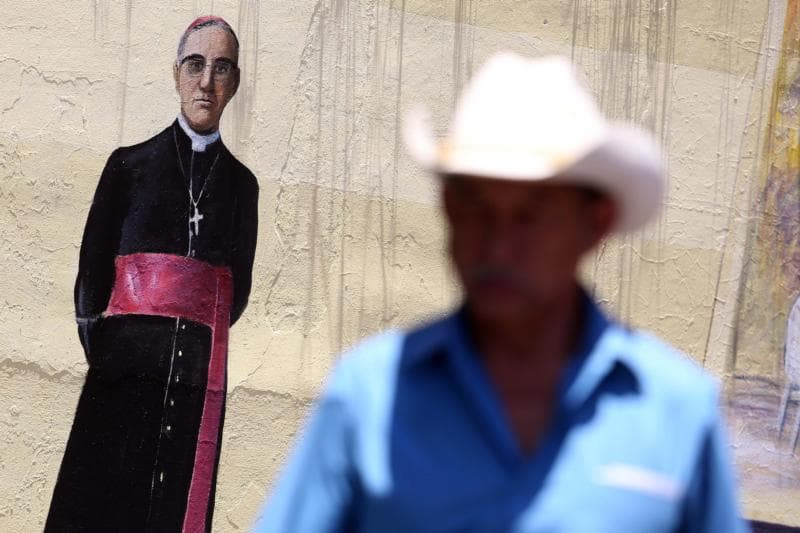SAN SALVADOR, El Salvador — Blessed Oscar Romero, the murdered archbishop of San Salvador, is a martyr of hope, said Chilean Cardinal Ricardo Ezzati, Pope Francis’s envoy to the celebration of the centennial of the archbishop’s birth.
Romero “is a true martyr of hope … a great martyr of hope,” said the Santiago cardinal. “He is so for the continent’s poor, he is so for the people of El Salvador, he is so for the hope of our beloved church, for all who struggle for justice, reconciliation, peace and affectionately call him ‘St. Romero of America.'”
Ezzati gave the homily August 15 at the Salvadoran cathedral, where people gathered for a special Mass. He said Romero’s “closeness to the poor … led him to see, with his eyes, the injustice the peasants were suffering.”
Repeatedly interrupted by applause, the cardinal quoted a letter from the pope to the Salvadoran bishops during Romero’s beatification in 2015: “Those who have Archbishop Romero as a friend in faith … those who admire him, find in him the strength and encouragement to build the people of God, to commit to a more balanced and dignified social order.
“Those words by Pope Francis confirm our intuition that Blessed Romero is a saint of hope,” the cardinal added.
Shortly before he was assassinated in 1980, Romero promised that if God accepted his martyrdom, he would forgive those who would take his life, the Santiago cardinal said in his homily August 15 at the cathedral in San Salvador.
He also quoted Romero’s words shortly before he was murdered: “Martyrdom is a grace from God which I do not believe I deserve. But should God accept the sacrifice of my life, that my blood be the seed of freedom, it is a signal that hope will soon be a reality. Should they kill me, I forgive and bless them.”
Ezzati arrived August 12 in San Salvador to take part in different activities to mark the centennial of Romero’s birth, which included a pilgrimage,”Caminando hacia la cuna del Profeta” (“Walking Toward the Prophet’s Birthplace”), from San Salvador to Ciudad Barrios, the eastern city where the martyr was born August 15, 1917.
Ordained April 4, 1942, in Rome, the Salvadoran religious leader was appointed archbishop of San Salvador February 23, 1977, and was gunned down during Mass in a hospital chapel March 24, 1980, a day after a sermon in which he called on Salvadoran soldiers to obey what he described as God’s order and stop carrying out actions of repression.
The archbishop’s March 30 funeral at the cathedral, attended by more than 200,000 mourners, was interrupted by gunfire that left 30-50 people dead. It is widely believed direct perpetrators of the unpunished crime were members of a paramilitary squad.













